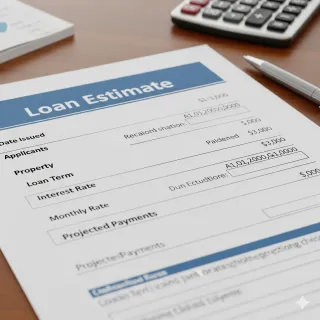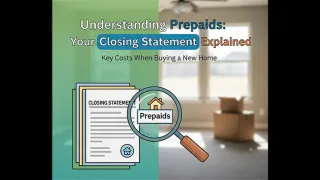
Address: 3255 Ashbourne Cir San Ramon CA 94583
Call: 877-343-7379
Email: info@munshi.biz
We value your time
Learn the secrets of mortgage world and save on your most expensive budget item!
Eager to know more on how to save on your mortgage?
join us to learn more
Information you were waiting for is available right here! From first time home buyers to seasoned investor and fund managers rely on this information to make informed decisions about their real estate financing.
Unlocking Your Loan Estimate: What You Need to Know
This blog post is a comprehensive guide to understanding your loan estimate. We'll walk you through the key sections, from loan terms and interest rates to closing costs and projected payments. Learn ... ...more
PR
September 15, 2025•2 min read

Why am I paying property taxes and insurance twice? Prepaids Explained
Confused about prepaids when you're buying a home? This video breaks down the purpose of prepaid interest and other fees. We'll explain how prepaids impact your overall mortgage and home closing costs... ...more
PR
September 08, 2025•3 min read

Tired of High Mortgage Rates? Find a Better Deal with Our New Tool
Learn the risks of hard money loans, what happens if you default, and how to avoid property loss, credit damage, and investment failure. Get expert tips today. ...more
PR
September 02, 2025•2 min read

Risk and Redemption: What Happens When Hard Money Loans Go Awry?
Learn the risks of hard money loans, what happens if you default, and how to avoid property loss, credit damage, and investment failure. Get expert tips today. ...more
PR
August 22, 2025•6 min read

Choosing the Perfect Partner: Your Guide to Hard Money Lenders
Learn how to choose the best hard money lender for your real estate investment. Compare rates, terms, and lenders to make confident, profitable decisions. ...more
PR
August 22, 2025•6 min read

Securing Your Future: Mastering the Art of Exiting with Hard Money Loans
Explore proven exit strategies for hard money loans—flip, rent, refinance, or bridge finance. Learn how to reduce risk and maximize ROI in real estate. ...more
PR
August 22, 2025•12 min read

© Copyright 2025. Munshi Capital Inc. All rights reserved.
